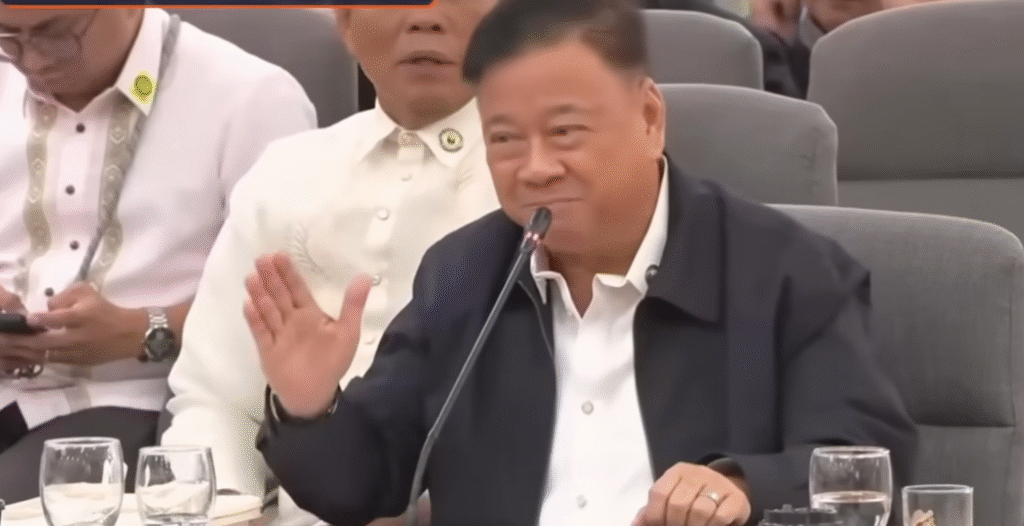Claudin A young Bicolana named Julia Monique Co. has become the target of public indignation after her social media accounts revealed a lifestyle that many people found remarkably extravagant. A dinner that cost ₱759,000 was the most notable vlog in recent days. It was instantly perceived as being remarkably similar to past scandals involving political families. The contrast felt particularly stark for a country emerging from years of flooding and economic hardship.
Her heritage only intensified the response. Claudine’s parents are Christopher Co, a businessman associated with Hi-Tone Construction, and Representative Elizaldy “Zaldy” Co, a well-known politician and CEO of Sunwest Group of Companies. Due to their involvement in significant infrastructure projects, such as flood control, both organizations have significantly increased public scrutiny of the family’s financial situation. The public became enraged because Claudine’s carefully planned displays of wealth appeared to be very effective at drawing attention to disparities, even though the family has highlighted its business savvy.
Bio Data and Family Background
| Name | Claudine Julia Monique Co |
|---|---|
| Born | 1998 (27 years old as of 2025) |
| Nationality | Filipino |
| Known As | Influencer, lifestyle vlogger |
| Parents | Christopher Co (businessman, founder of Hi-Tone Construction & Development Corp.) |
| Notable Relative | Elizaldy “Zaldy” Co, Ako Bicol Party-list Representative, CEO of Sunwest Group |
| Siblings | Angelica Natasha Co (former BHW Party-list Representative) |
| Controversy | Lavish lifestyle showcased on social media, including luxury brands and ₱759,000 dinner |
| Public Perception | Criticized as a symbol of privilege amid flood control project controversies |
| Reference | Rappler |

The expensive clothing and accessories she wore at a Paris fashion show, such as the Fendi x Versace silk jacket valued at over ₱170,000, swiftly became emblems of extravagance. One ensemble, as noted by netizens, could cover many Filipinos’ annual salaries. The response was moral in nature as well as financial. Although her lifestyle was viewed as particularly inventive in demonstrating how wealth is managed online, it was also seen as drastically less sensitive to the realities of her fellow citizens.
Utilizing her position as an influencer, Claudine presented a well-curated brand that appealed to affluent consumers. Critics pointed out that her timing couldn’t have been worse. The jet-setting and designer clothing she wore touched a raw nerve at a time when Bicol’s displaced families were demanding more robust flood control measures. The frustration was expressed by public figures such as Bianca Gonzalez, who stated that while politicians’ children freely display opulence without restraint, regular people frequently hesitate to post modest purchases for fear of criticism.
Her connection to Lemuel Lubiano, whose family is associated with another construction dynasty, has also come to light as a result of the trouble. They traveled abroad, appeared in several vlogs together, and even displayed a Mini Bichon dog valued at almost ₱380,000. Although such decisions may appear ordinary to their social circle, they served as a strikingly powerful reminder to the general public of how privilege functions across family networks.
The repercussions were immediate. Claudine removed a lot of her YouTube videos, including ones that once showed off her travels to thirty-eight different countries. Additionally, posts that listed her clothes and accessories on her Instagram account, clauds.style, were removed. Nonetheless, her posts are still remembered clearly, in part because they show how members of political families frequently use social media to uphold their elite identities. Particularly helpful has been the backlash in igniting national discussions about leadership, wealth, and accountability.
The analogy to Jeane Napoles, who once sparked controversy by showing off her expensive overseas purchases, has been brought up time and again. Both cases demonstrate how the public’s tolerance for ostentatious consumption is sharply diminished when it is connected to projects that are funded by taxpayers. The term “nepo baby” has stuck with Claudine because of her lifestyle, which is blatantly obvious evidence of systemic privilege, rather than because of her individual actions.
Through strategic alliances, influencers frequently acquire respect and cultural capital. However, Claudine’s case illustrates the drawbacks of being visible. Instead of being admired, her carefully manicured brand has drawn criticism. The Code of Conduct for Public Officials requires public officials to live modest lives, so it stands to reason that their children’s excesses would be criticized. Her story has evolved from gossip to a discussion about governance and values as a result of this dynamic.
The situation’s rapid transformation into a collective critique is what makes it so novel. Young Filipinos, who are very good at organizing hashtags and online campaigns, disseminated the #FloodControlNepoBaby tag, which connected her to systemic corruption. The backlash was political in nature in addition to being personal. It represented an opposition to conspicuous privilege, a call for accountability, and a demand for modesty.
How Claudine and her family will handle this attention is the question at hand. Sincere community involvement, openness, and true philanthropy could change her public perception. If the controversy is handled carefully, it may even present a surprisingly low-cost chance to rethink privilege in terms of accountability. Ignoring the backlash, however, runs the risk of making it very likely that the public will lose all faith in political families.
